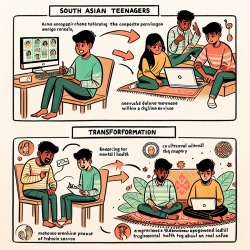Introduction
Organ donation has long been a critical component of medical practice, offering hope to thousands of patients in need of life-saving transplants. However, the ethical and legal complexities surrounding organ procurement, especially in cases of uncontrolled donation after cardiac death (uDCD), pose significant challenges for medical practitioners. The research article titled "Presumed consent for organ preservation in uncontrolled donation after cardiac death in the United States: a public policy with serious consequences" provides a comprehensive analysis of these challenges and offers valuable insights for practitioners seeking to navigate this complex landscape.
Understanding the Ethical and Legal Landscape
The article highlights several ethical and legal concerns associated with uDCD, including the absence of universal guidelines for declaring death, the use of life-support systems for organ preservation, and the potential violation of individual autonomy. These issues underscore the need for practitioners to critically assess current practices and advocate for policies that prioritize ethical standards and respect for patient autonomy.
Key Takeaways for Practitioners
- Critical Evaluation of Death Criteria: Practitioners should be aware of the ongoing debate surrounding the criteria for declaring death in uDCD cases. The lack of scientifically validated criteria can lead to ethical dilemmas and potential legal liabilities. Practitioners must stay informed about the latest developments in this area and advocate for clear, evidence-based guidelines.
- Respect for Autonomy: The principle of respect for autonomy is central to medical ethics. The presumption of consent for organ preservation without explicit consent raises significant ethical concerns. Practitioners should ensure that patients' rights and autonomy are respected and that consent processes are transparent and robust.
- Balancing Stakeholder Interests: The interests of various stakeholders, including patients, families, organ procurement organizations, and healthcare institutions, must be carefully balanced. Practitioners should engage in open communication with all parties involved and strive to align practices with ethical standards that prioritize patient welfare.
Encouraging Further Research and Dialogue
The article emphasizes the importance of continued research and dialogue in addressing the ethical and legal challenges of organ donation. Practitioners are encouraged to engage with ongoing research, participate in professional forums, and contribute to the development of policies that reflect ethical best practices.
Conclusion
As the field of organ donation continues to evolve, practitioners play a crucial role in ensuring that ethical and legal standards are upheld. By critically evaluating current practices, advocating for patient autonomy, and engaging in ongoing research and dialogue, practitioners can contribute to a more ethical and transparent organ donation system.
To read the original research paper, please follow this link: Presumed consent for organ preservation in uncontrolled donation after cardiac death in the United States: a public policy with serious consequences.










